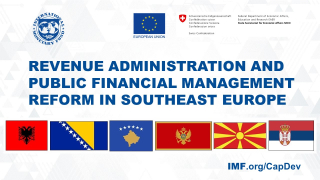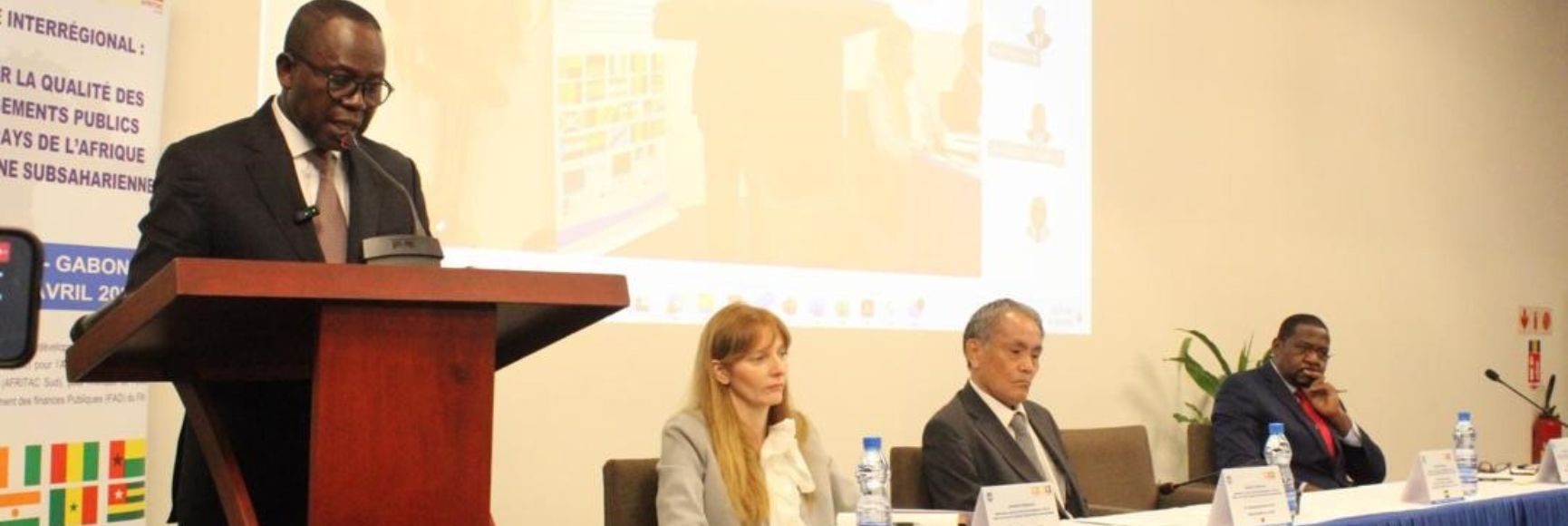Posted by Arturo Navarro[1]
The IMF’s Fiscal Affairs Department (FAD) provides supports to six beneficiaries in Southeast Europe (Albania, Bosnia and Herzegovina, Kosovo, Montenegro, North Macedonia, and Serbia) to develop their human and institutional capacities related to public financial management (PFM). This regional engagement is mainly provided through the Revenue Administration and Public Financial Management Reform in Southeast Europe program, an initiative funded by the European Commission and the Swiss State Secretariat for Economic Affairs (SECO). Since the beginning of the COVID-19 pandemic, the program has given priority to the design and implementation of tools to counter the impact of the crisis, especially fiscal risk management.
The response to the pandemic has created significant fiscal risks, requiring an upgrade of the instruments used by the authorities to analyze and monitor them. Reduced economic growth has undermined the profitability of state-owned enterprises (SOEs), which play a key role in the delivery of public services in the region and are an important source of employment. Weaker financial results increase the need for government intervention to ensure that key public services continue to be provided. However, the oversight of SOEs in the region is divided among several institutions, only limited financial analysis is carried out, and the reporting of SOEs’ performance is generally weak. As a result, decision-makers have not been well informed of the tools and measures available to mitigate the fiscal risks created by SOEs.
Governments have also relied on below-the-line measures like loans through extra-budgetary funds or off-balance sheet support, such as government guarantees for private sector loans to fund working capital and wages. This has created contingent liabilities that need to be closely monitored. The IMF estimated early in the pandemic that these types of fiscal measures represented about 3.1 percent of GDP, on average, with Bosnia and Herzegovina and Serbia relying the most on these instruments. The problem faced by most beneficiaries is that guidelines and tools to monitor these risks were scarce or, at best, outdated.
Over the last 18 months, FAD not only provided the authorities with key analysis and recommendations to strengthen fiscal risk management, but also hands-on support to test, adapt, and implement tools that could be used across the region to monitor fiscal risks.
Technical assistance provided by FAD focused on three main areas:
- Strengthening the oversight of state-owned enterprises: SOEs have been significantly impacted by the pandemic and required government support to withstand the crisis. FAD has trained officers to undertake financial analysis of the enterprises and identify the fiscal risks that could impact their profitability, liquidity, and solvency. The training leveraged the FAD-developed SOE Health Check tool, which provided a methodology and template to undertake this analysis.
- Setting up and monitoring fiscal risks from credit guarantee schemes: these schemes became one of the most important tools used in the region to counter the effects of the pandemic. FAD has provided advice on good practices for the design, budgeting, monitoring, and reporting of the schemes to ensure fiscal risks were appropriately measured and accounted for. The analytical framework and supporting tool helped assess the fiscal risks and costs of the schemes.
- Reporting of fiscal risks: to improve transparency, FAD has provided guidance on good practices in the reporting of fiscal risks, through the development of fiscal risk statements that accompany budget documentation. Advice on how to strengthen existing fiscal risk statements, access to good practices used by other countries, and development of draft SOE reports are some of the achievements in this area.
The support provided over this period presented FAD with the opportunity to pilot the tools that constitute the IMF’s Fiscal Risk Toolkit (for more information go to www.IMF.org/FiscalRisk). There has been an especially strong uptake in the region of the SOE Health Check tool, which has been translated into some local languages, as well as the tool for monitoring loan and guarantee schemes.
A common regional approach to fiscal risk management should allow for better coordination of policies and reforms across the six beneficiaries of the Southeast Europe Project. With the generous support of the European Union and Switzerland, FAD will continue to provide support on fiscal risk management to these beneficiaries, to ensure that the new tools and practices become well-established, thus enabling effective monitoring of fiscal risks, the adoption of appropriate mitigation measures, and increased transparency of government transactions.
Coordination with other development partners working in the region will be important. FAD is engaging regularly with key partners, such as the EC, SECO, and the World Bank. Efforts will also branch out to support reforms of public investment management that will play a key role in the economic recovery. These efforts to modernize PFM institutions and fiscal processes are expected t
[1] Senior Economist, Fiscal Affairs Department, IMF.
Note: The posts on the IMF PFM Blog should not be reported as representing the views of the IMF. The views expressed are those of the authors and do not necessarily represent those of the IMF or IMF policy.






